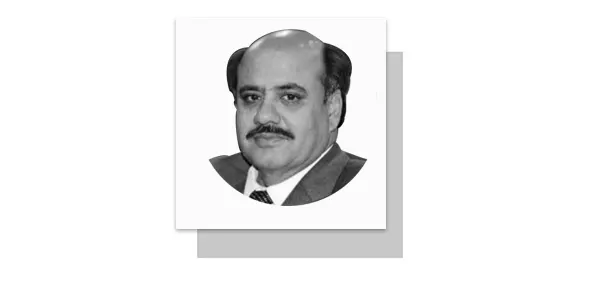SAUDI Arabia’s substantial investment across various sectors of Pakistan is poised to yield significant short—and long-term economic benefits for the country. These initiatives bolster Pakistan’s financial stability and enhance its appeal for foreign direct investment. As a result, the Pakistani leadership has been actively pursuing opportunities to persuade the Saudi government and business community to invest in Pakistan, signaling a promising future for the two nations.
Besides investment, Riyadh has accommodated Pakistan’s request fora $3 billion debt rescheduling, which Saudi Arabia initially deposited for one year in 2021. Pakistan still needs to repay due to the need for foreign non-debt-creating inflows. On December 5, 2024, for the third time, the Saudi Fund for Development (SFD), on behalf of the Kingdom of Saudi Arabia, extended the term for the deposit of $3 billion, maturing for another year. Pakistan needs to roll over the debt from Saudi Arabia to avoid sovereign default. In November 2024, during the second session of the Pakistan-Saudi Arabia Joint Task Force, Islamabad and Riyadh signed 34 MoUs. Seven of these MoUs formalized into agreements worth $560 million. Crown Prince Salman’s Vision 2030, announced in April 2016, has a promising impact on Saudi Arabia’s economy. It germinates various opportunities for a Pakistani-educated, skilled workforce. Vision 2030 aims to open the country economically, diversify away from oil and build a national identity. The vision’s foundational document is centered on three themes—”a vibrant society, a thriving economy and an ambitious nation”—and has led to real policy shifts. The Saudi government has invested tens of billions of dollars in emerging technologies such as artificial intelligence.
The emerging technologies sector presents a wealth of opportunities for collaboration between Pakistan and Saudi Arabia. A prime example is the $100 million Saudi Arabia-Pakistan Tech House, launched by Prince Fahad bin Mansour in March 2023. This joint venture is designed to foster partnerships with Pakistan’s IT companies and enterprises, with Saudi Arabia providing management oversight while Pakistani coders and developers lead the technical aspects. This mutually beneficial arrangement underscores the potential for successful collaboration between the two nations.
One of the important pillars of Vision 2030 is to transform the Saudi Arab into a global investment powerhouse. The country is emerging as a connectivity hub due to the restructuring and expanding airports and related sectors. It launched a new airline to benefit from the aviation industry. According to the Saudi Ministry of Investment, foreign direct investment increased by over 150 percent from 2017 to 2023. These developments require a skilled workforce in various areas, such as the hospitality industry, airline crew, management, etc. The government of Pakistan needs to focus on these areas and direct its vocational institutes and universities to provide state-of-the-art education and training to the students. So they can get lucrative jobs in Saudi Arabia.
Prime Minister Shehbaz visited Saudi Arabia five times to attract investment. He ensured his counterpart that Saudi investors would get the best facilities possible and ease of doing business under the umbrella of the Special Investment and Facilitation Council (SIFC). The Council is designed for fast-track decision-making, i.e., one-window, one-stop and bureaucratic red tape-free operation. Notably, Saudis expressed their interest in Pakistan’s mineral and mining sector. The estimated worth of the country’s precious minerals is up to $6 trillion. Pakistan should focus on Saudi Arab food security to make itself more attractive. Riyadh has a high demand for quality and fresh Hilal food commodities. As an agricultural state with promising dairy and poultry industries, Pakistan is positioned to fulfill Saudi needs for poultry, meat, dairy products, etc. The encouraging factor is that Saudis are also interested in the country’s agricultural products. That’s why Saudi Arabia agreed to provide an initial $500 million investment to establish a Land Information and Management System, Center of Excellence (LIMS-CoE), to modernize the country’s agricultural sector.
Prime Minister Shehbaz Sharif visited Riyadh on December 2, 2024, to participate in the ‘One Water Summit’ at the invitation of Prince Mohammed bin Salman bin Abdulaziz Al Saud, Crown Prince and Prime Minister of Saudi Arabia. While appreciating the host’s efforts in pursuing the United Nations Sustainable Development Goal on freshwater management (SDG-6), Premier Shahbaz shared with the participants Pakistan’s efforts to restore, preserve, and adapt freshwater resources and wetlands. On the sidelines of the Summit, the Prime Minister also met Crown Prince Salman to galvanize the ongoing projects between Pakistan and Saudi Arabia. To conclude, Saudi Arabia has always viewed Pakistan as a coveted ally because it has supported Islamabad politically, diplomatically and economically. Crown Prince Salman’s Vision 2030 has created many opportunities for Pakistanis to do white-collar jobs in Saudi Arabia.
—The writer is Prof at the School of Politics and IR, Quaid-i-Azam University.
(jaspal_99@hotmail.com)










